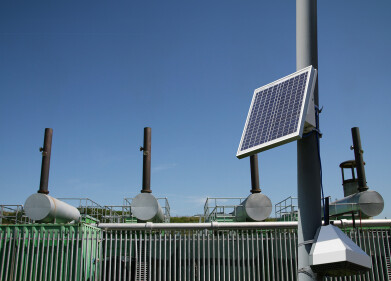Measurement and Testing
What Led to France's Oil and Gas Ban?
Jan 15 2018
The French are often at the forefront of environmental change. They were one of the first countries to announce a future ban on petrol and diesel cars. And now, the French are leading the way in the energy sector, with new promises to ban oil and gas production – including fracking – across the country and its territories by 2040. So, what’s led to these changes – and how have they been received?
What is fracking?
To understand the relevance of the ban in France, it is important to understand what exactly fracking entails.
Natural shale gas and oil is trapped and stored deep underground in sedimentary rocks. To reach these resources, companies use hydraulic fracturing – or ‘fracking’. It’s the process of drilling into the earth and then pumping a high-pressure mixture of water, sand and chemicals directed into rocks to release the gas and oil from inside.
It can be carried out vertically, but most commonly companies drill horizontally, which creates wells and new pathways for gas to flow out. ‘Nitrogen Oxides Measurements in Hydrocarbon Gases’ discusses the detection of harmful pollutant within these gases.
Environmental concerns
Fracking can, however, be controversial as there are concerns surrounding the lasting effect on pollution, climate change and safety. Among other issues, environmental groups worry about the groundwater contamination from pumping the mixture into rocks.
As a result, French President Emmanuel Macron wants to lead by example as major world economy and switch from fossil fuel to more renewable sources.
About the ban
Back in 2011, France banned fracking for gas and cancelled exploration licenses after protests from influential environmental groups, with lawmakers finally noting the difference between the exploration of geothermal and shale gas. By imposing this ban, the French government took a major step towards recognising environmental concerns of the use of fossil fuels.
More recently, President Macron has passed a law which will ban all oil and gas production by 2040. This will mean that no existing licenses will be renewed after 2040 and that no new permits will be allowed or granted.
France responds
Courts decided the ban on oil and gas production was legitimate. But many, including Minister for the Ecological and Inclusive Transition minister Nicolas Hulot, understand that this could start a trend of backlash lawsuits from energy companies. However, this trend could be minimised by the gradual introduction of the changes that the government has planned.
How about employment? The energy industry accounts for nearly 200,000 French jobs. With concerns over potential job losses, there are worries about the aftermath of banning fossil fuel energy production altogether. In response, the President plans to enact a renovation programme for homes. Ultimately the aim will be to reduce energy consumption, cut emissions and create more jobs.
All in all, this ban could be widely symbolic. The French President clearly hopes to lead the world from fossil fuels towards renewable energy. Looking to the future, will we see any other world leader commit to sustainable alternatives in such a strong way?
Digital Edition
PIN 25.5 Oct/Nov 2024
November 2024
Analytical Instrumentation - Picturing Viscosity – How Can a Viscometer or a Rheometer Benefit You? - Sustainable Grease Formulations: Evaluating Key Performance Parameters and Testing Method...
View all digital editions
Events
Dec 03 2024 Dusseldorf, Germany
Dec 08 2024 Anaheim, CA, USA
Turkey & Black Sea Oil and Gas
Dec 11 2024 Istanbul, Turkey
Dec 19 2024 Aurangabad, India
Jan 20 2025 San Diego, CA, USA



















